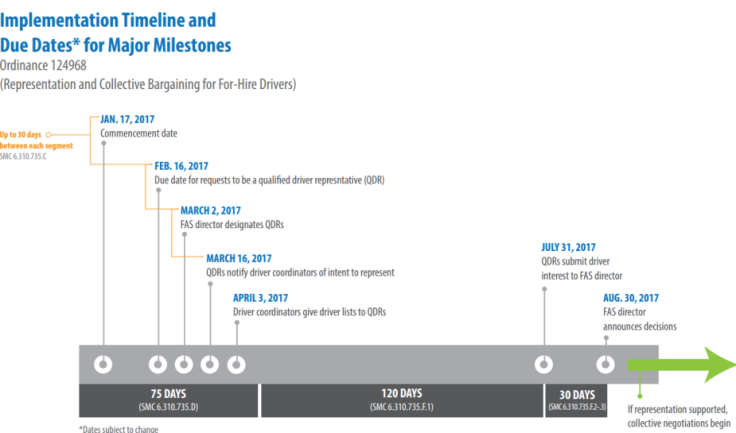Seattle Judge Blocks Law Allowing Uber And Lyft Drivers To Unionize
A first such law that allowed Uber and Lyft drivers the right to unionize was temporarily blocked Tuesday by a judge in Seattle, in response to a lawsuit filed by the U.S. Chamber of Commerce.
The law, which was passed in 2015, was challenged by two lawsuits. The law allowed Uber and Lyft drivers, who are independent contractors, to form a union and demand for equal pay and benefits and better working conditions, the court order said.
District Judge Robert Lasnik's temporary restraining order came after the Chamber of Commerce filed a lawsuit last month, and Uber and Lyft drivers filed another, backed by the National Right to Work Legal Defense Foundation and the Freedom Foundation. Both the groups fight for right-to-work laws and other conservative, anti-union legislation across the country.
The lawsuits claimed that the law classified independent contractors as employees of the company and the National Labor Relations Act (NLRA) does not extend the eligibility to unionize and bargain to independent contractors.
Earlier this month, the city gave permission to the local Teamsters Union from the city to begin trying to organize drivers, which sparked the drivers’ lawsuit.
“We have no benefits,” said Don Creery, an Uber driver and longtime supporter of the unionization effort, according to the Seattle Times. “I work full-time for a $70 billion company. The American taxpayers should not have to subsidize my health care. That’s not right.”
According to the law’s implementation timeline, companies must turn over their drivers’ contact information to the union early next month. That is, unless the court intervenes.

However, the U.S. Chamber filing argued that turning over lists of drivers involved confidential and trade secret information.
Uber and Lyft, along with 10 other cab-hailing companies, have been lobbying and conducting campaigns to persuade their drivers to vote against the union.
© Copyright IBTimes 2024. All rights reserved.











